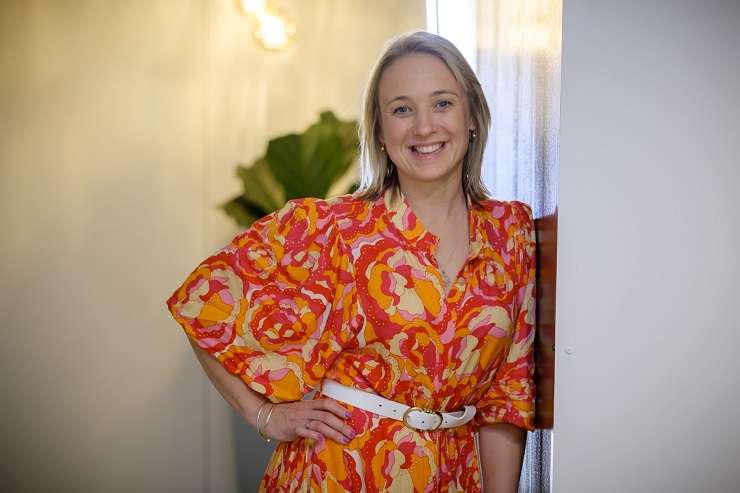The Government’s decision to scrap the first home grant has left many first-time buyers confused and worried, mortgage brokers have told OneRoof.
Housing Minister Chris Bishop announced yesterday that Kāinga Ora was no longer accepting applications under the grant, which gave buyers up to $10,000 towards their first home. A message posted on Kāinga Ora's website stated that the cut-off for new applications was 1pm on May 22.
Mortgage brokers told OneRoof the decision had caught them off-guard. Many had spent the afternoon fielding calls mainly from concerned clients who had already been approved and were banking on the extra money.
Discover more:
Start your property search
- First home grant axed: What the Government changes mean for first-time buyers
- Countdown to bright-line: Stressed landlords urged to 'beat the rush' and list now
- Own outright in less than 6 years: Suburbs where Kiwis can pay off the mortgage fastest
My Mortgage mortgage broker Claire Williamson said if they hadn’t acted on it by the time the grant expired which was six months from its approval date then they could be forced to reconsider their options.
She received several calls from first-home buyers just after the announcement. One had already made an offer on a property and was relying on the grant to make up the 10% deposit required by the bank.
“If they lose the property they currently have an offer on, then they won’t be able to buy at the same level – they will have to keep saving.”

My Mortgage mortgage broker Claire Williamson has been fielding calls from first-home buyers worried about what the announcement means for them. Photo / Supplied
For many of Williamson’s clients, the grant was also the difference between them having a 20% deposit or being a low deposit borrower forced to pay a low equity margin, which could push the interest rate up by a further 1%.
“It’s a pretty big difference. It depends on how much they are borrowing of course, but if you work it out on about $500,000 it’s roughly $4000 to $5000 a year.”
Williamson said the Government’s move to scrap the first home grant had come as a surprise because it was one of the big enablers for first-home buyers. She estimated about half of the first-home buyers her firm dealt with had been accessing the grant because they met the income cap of $150,000 for a couple and had been able to find homes in Cambridge and Hamilton within the $650,000 price cap for the area.
“It has helped a lot of people into their first homes and it has helped a lot of people get to that 10% deposit.
“While I don’t think it’s going to affect every first-home buyer because a lot of them aren’t eligible due to the criteria, it will affect some and particularly in regional areas too because that’s where it is used a lot more. It’s a little bit disappointing really.”
Loan Market mortgage adviser Dave Williams said the Government should have given people a bit more warning before pulling the plug on the grant.
He estimated about 80% of his first-home buyers had the grant approved and expected it to impact people’s decision-making.

First-home buyers have been the most active group in the housing market in recent months - but will this change? Photo / Peter Meecham
“$10,000 isn’t the end of the world, but if you are gearing up to buy your first home and you were told there was $10,000 available to you as a couple and now there’s not $10,000 available to you, you are probably going to change your mind about buying your first home,” he said.
“At the end of the day, $10,000 is a lot of money when you are jumping into your first home. To borrow $10,000, it’s going to cost you $30,000 to pay back over the life of the loan so I just think it’s a dumb move.”
The extra money was not usually the difference between first-home buyers getting a loan and not getting a loan, he said, but it did make the difference between a 20% deposit approval and low deposit approval.
He expected emails to start flowing in from clients this morning once the news had sunk in.
Mortgage Managers mortgage adviser Stuart WiIls said people were in shock over just how quickly the first home grant had been axed.
Earlier this week Wills had predicted applications would close within a few weeks and yesterday morning mentioned to a client that she should probably get her application in sooner than later.
She took his advice managing to sneak the application in before it closed. “She was a bit lucky.”

EasyStreet Mortgages adviser Gareth Veale does not think removing the First Home Grant will have as big an impact on first-home buyers as people are making out. Photo / Supplied
While the approvals were valid for six months, he said he wouldn’t be surprised if the funding ran out like it had with First Home Partner and it was cancelled ahead of time.
However, Wills said only about 20% of people really needed the First Home Grant to buy a new house and for the remaining 80% it was a “nice to have”. “It is free money so you may as well grab it. Lots of people that got it didn’t really need it, but they would have taken it.”
A reduction in interest rates and getting inflation under control would be more of a help to first-home buyers, he said.
EasyStreet Mortgages adviser Gareth Veale agreed that there were other ways the Government could help first-home buyers. He said loosening lending criteria and keeping the First Home Loan scheme, which he described as a “game changer” in helping people buy a house with a 5% deposit, would make more of an impact on first-home buyers than the First Home Grant had.
In Christchurch very few buyers could find an existing home for under the price cap of $575,000 so had not even been eligible for the First Home Grant, he added.
“I actually don’t think the First Home Grant is as big as people are making it out for first-home buyers ... 99% of people are not relying on it to get their deposit over the line. It’s just a bonus, it’s just free money for the sake of buying a house.”
In statement sent to OneRoof last night, the Housing Minister said: “First home buyers are still able to access the First Home Loan, which evidence tells us makes a bigger difference to whether or not someone is able to buy a home. They're also still able to withdraw their Kiwisaver to help with a deposit.
“The biggest thing that will make a difference for first home buyers is the Government's plan to make housing more affordable by increasing supply. We will increase housing supply through our Our Going for Housing Growth plan. It will smash urban land limits, improve infrastructure funding and financing, and create incentives for councils and communities to go for housing growth.”
Bishop confirmed to OneRoof that the Government was ending KiwiBuild but said he would make further announcements about it in due course.
- Click here to find properties for sale













































































